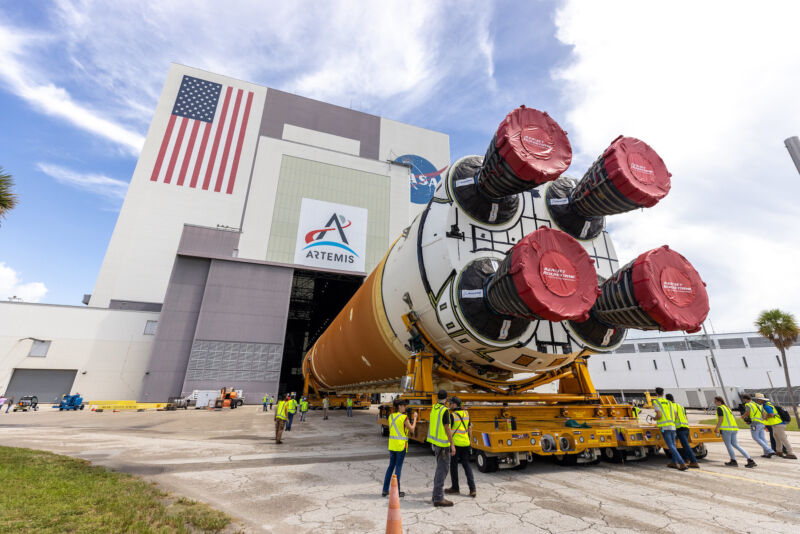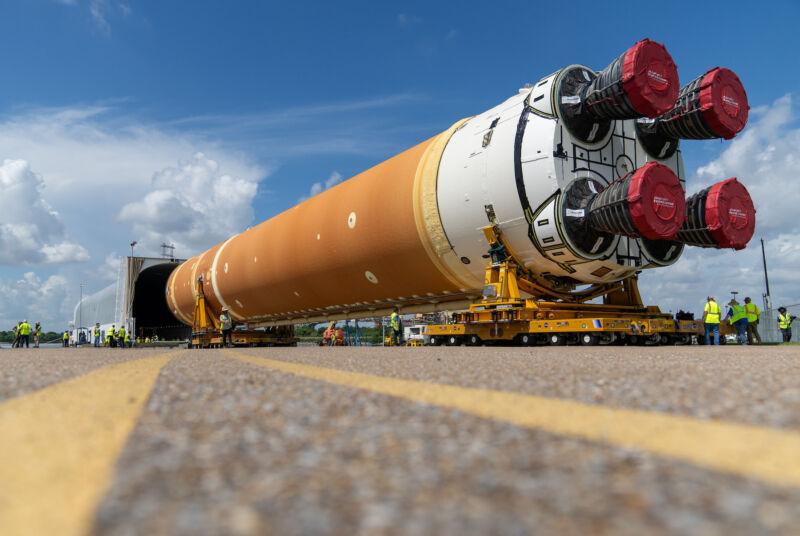Rocket delivered to launch site for first human flight to the Moon since 1972

Enlarge (credit: NASA/Isaac Watson)
The central piece of NASA's second Space Launch System rocket arrived at Kennedy Space Center in Florida this week. Agency officials intend to start stacking the towering launcher in the next couple of months for a mission late next year carrying a team of four astronauts around the Moon.
The Artemis II mission, officially scheduled for September 2025, will be the first voyage by humans to the vicinity of the Moon since the last Apollo lunar landing mission in 1972. NASA astronauts Reid Wiseman, Victor Glover, Christina Koch, and Canadian mission specialist Jeremy Hansen will ride the SLS rocket away from Earth, then fly around the far side of the Moon and return home inside NASA's Orion spacecraft.
"The core is the backbone of SLS, and it’s the backbone of the Artemis mission," said Matthew Ramsey, NASA's mission manager for Artemis II. "We’ve been waiting for the core to get here because all the integrated tests and checkouts that we do have to have the core stage. It has the flight avionics that drive the whole system. The boosters are also important, but the core is really the backbone for Artemis. So it’s a big day.”

